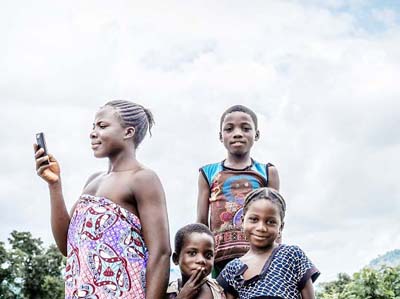MTN Nigeria and Huawei have completed commercial deployment of the RuralStar 2.0 solution, which provides low-cost long-distance voice and mobile broadband services for remote rural areas in Nigeria, helping to connect the unconnected.
Nigeria has a population of 180 million, and more than half of them live in rural villages, which are typically scattered around vast grasslands or forests. The mobile signal coverage is poor and many people cannot enjoy the convenience of modern mobile communication.
Network deployment seriously lags behind amid surging call demand and the increasing popularity of mobile Internet Apps and Mobile Money services, while providing telecommunications in the rural areas is a focus of Nigeria Vision 2020.
The construction cost of traditional tower-mounted macro sites is high in remote areas since infrastructure is poor and no mains supply or transmission resources are available. In addition, the average revenue per user (ARPU) is as low as $1 to $1.5, and the ROI period can be more than 10 years.
MTN and Huawei jointly innovate and introduced Huawei’s RuralStar 2.0 solution to reduce the TCO by 50% for a given target coverage area in contrast with traditional site solutions. Using low-band NLOS LTE Relay, it allows site deployment locations to change from high towers to low poles with a height of only 12 m, reducing the site infrastructure construction cost by 70%. In addition, low-band LTE Relay allows for the single-hop transmission distance of up to 40 km, and therefore can be used as a substitute for microwave transmission and costly traditional satellite narrowband transmission. Finally, RuralStar 2.0 uses low power consumption equipment enabling pure solar energy for the power supply.
“Everyone has the right to access the Internet. We are glad to see RuralStar improves villagers’ living standard,” said Cao Ming, Vice President of Huawei Wireless Network Product Line. "RuralStar aims to create a healthy business ecosystem and connect the unconnected in emerging markets. Huawei will work with the industry to eliminate the digital divide in emerging markets so that more people can enjoy the convenience brought by wireless communications and mobile Internet."

